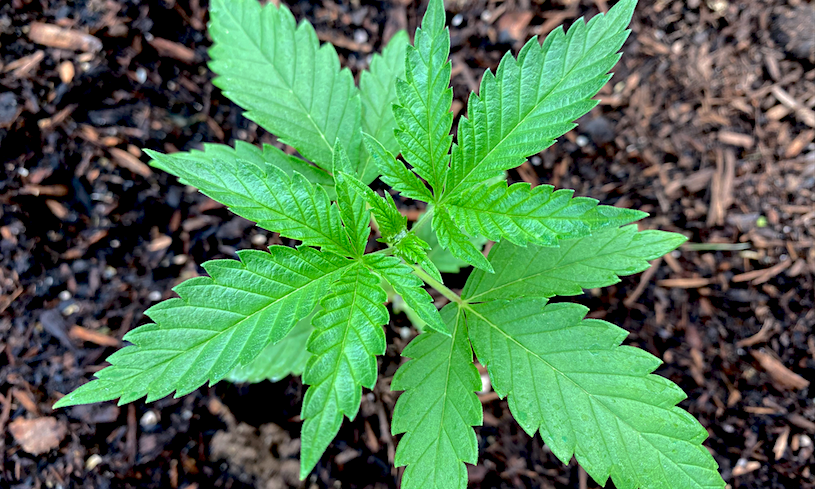In an effort to help licensed marijuana businesses and would-be cannabis workers alike, New York’s Department of Labor (DOL) has published dozens of sample job descriptions for positions in the legal industry.
The examples are intended to help companies streamline hiring processes and allow prospective employees to assess their qualifications to work in various roles within the emerging cannabis industry, a DOL representative told Marijuana Moment.
“The legalization of cannabis has created significant opportunities for New Yorkers, including exciting new careers,” the statement said, adding that the department “is committed to supporting job seekers and businesses statewide as this industry continues to expand.”
DOL began posting the sample job descriptions, which now number about 50, earlier this month. They include example positions in cultivation, delivery, product manufacturing, retail and hospitality as well as testing and sampling jobs.
Positions range from “entry-level,” such as handling trimming or managing retail inventory, to “highly skilled” roles involving things like management, cannabinoid extraction and overseeing laboratory testing.
The example job descriptions are included on DOL’s “Cannabis Career Exploration” website, which is meant as an educational resource for job-seekers. The site also includes links to cannabis education opportunities and a page about how to go about looking for marijuana jobs.
“The New York State Department of Labor assembled this online resource to help New Yorkers explore working in cannabis through the potential functions of a variety of positions across this burgeoning industry,” the department said. “This will also help job seekers assess their skills to find an area of focus and determine what, if any, additional training, or education they may need to be successful in their chosen careers. These educational resources may also serve as a starting point for businesses as they begin hiring their own workforce.”
The new sample job postings come just weeks after the state Supreme Court lifted an injunction that has barred state marijuana regulators from processing hundreds of new retailer licenses. The development clears the path to significantly expanding the state’s cannabis market.
“This decision brings much needed relief to the hundreds of provisional licensees who, until now, have had their businesses sidelined,” Cannabis Control Board (CCB) Chair Tremaine Wright said in a press release last month. “We remain dedicated to upholding a fair and transparent process as we continue to grow and support New York’s cannabis industry.”
Gov. Kathy Hochul (D), meanwhile, wrote on social media that the court’s decision “means stores opening faster, more places to buy safer, tested, legal cannabis, & with our aggressive enforcement efforts, fewer bad actors in the market.”
“Our first-in-the-nation program for justice-involved cannabis licensees is back in business,” she said.
As it stands, there are only about two dozen licensed adult-use marijuana retailers in the state. Meanwhile, despite the injunction, regulators did open the application period for hundreds of new general marijuana business licenses in October.
Amid the slow rollout of the recreational market, illicit cannabis operators have proliferated across the state, prompting the governor to announce that officials would be “ramping up” enforcement.
In October, the New York Senate Cannabis Subcommittee, which was established in April and is being chaired by Sen. Jeremy Cooney (D), heard from witnesses and discussing potential legislative solutions to the state’s ongoing cannabis legalization implementation problems.
Hochul, meanwhile, recently signed legislation that attempts to make it somewhat easier for financial institutions to work with state-licensed cannabis clients.
She also signed a separate bill that’s meant to provide tax relief to New York City marijuana businesses that are currently blocked from making federal deductions under an Internal Revenue Service (IRS) code known as 280E.
While Hochul signed a an earlier budget bill last year that included provisions allow state-level cannabis business tax deductions—a partial remedy to the ongoing federal issue—New York City has its own tax laws that weren’t affected by that change. The new measure is meant to fill that policy gap.
This month, however, the governor additionally vetoed legislation that would have allowed hemp seeds to be included in animal feed for pets, horses and camelids such as llamas and alpacas.
As part of the state’s effort to speed consumer access to legal marijuana, regulators also launched a program, known as the Cannabis Growers Showcase (CGS), an initiative of OCM that allows licensed growers and processors to sell directly to consumers.
Regulators voted to approve that program in July and quickly began accepting applications. The first pop-up event kicked off in the Hudson Valley in August, and another was held down the road from this year’s state fair.
In September, 66 state lawmakers—about a third of the entire state legislature—also wrote to Hochul urging her to sign a bill that would allow licensed marijuana producers to sell products to tribal retailers. The plan would offer a release valve to hundreds of cannabis farmers who are currently sitting on surpluses but have no place to sell their products.
Meanwhile, New York regulators are working to debunk what they say is the “false” narrative that cannabis is commonly contaminated with fentanyl—a “misconception” that remains “widespread” despite a lack of evidence. OCM recently put out a factsheet on the issue, acknowledging that while fentanyl has been found in drugs like MDMA and heroin, anecdotal claims about marijuana laced with the potent opioid are so far unfounded.
The state’s Office of Addiction Services and Supports (OASAS) also recently revised guidance around THC testing for people in treatment for substance use disorder, advising marijuana screening only in cases where “the patient has identified a reduction in, or cessation of cannabis as part of their treatment goals.”
Last month, on the post-Thanksgiving Black Friday, regulators encouraged people to take advantage of the deals and support small businesses by shopping for cannabis at licensed retailers.
Maryland Collects More Than $12 Million In Legal Marijuana Taxes During First Quarter Of Legal Sales
Read the full article here

